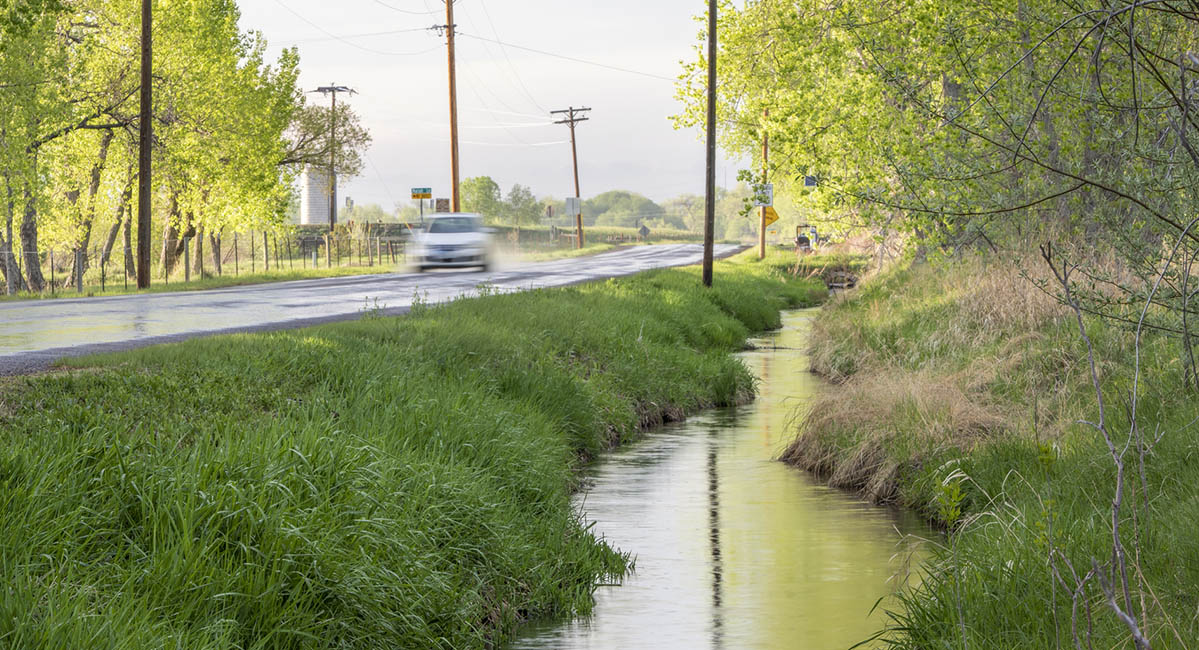
Ottawa City Council Stuck in the Ditch
Ottawa City Council met today for its second session of 2024. The meeting was short, with most of the debate centring around the ditch policy. In 2022, the then municipal administration updated its Ditch Alteration Policy, allowing citizens to alter drainage courses subject to city approval and enforcement by by-law officials. However, three addresses on Anderson Road did not apply for alteration and were found to be non-compliant. Councillor George Darouze brought forward a motion asking the Anderson Road addresses to “be exempted from the revised ditch alteration policy carried by Council on July 6, 2022.” Councillor Darouze stated that the City of Ottawa ditch policy in 2021 would have allowed for the changes made by the homeowners if only they had first applied. He asked Council to allow the alterations to remain in place and be “monitored for future flooding concerns.”
Despite what seemed to be a relatively benign motion, it generated a lot of debate. Councillor Lane Johnson voiced her concern, saying that the ditches are part of a drainage network, that compromises would impact the system, and that the entire system’s integrity must be preserved. She stated that allowing modification would set bad precedence. Councillors Theresa Kavanaugh and Marty Carr agreed that allowing changes would set a bad precedent. Carr described an incident where a resident built a bridge over a drainage ditch, which collapsed and exacerbated flooding in her ward.
Councillor Cathy Curry spoke in favour of the motion, stating that issues surrounding modifying drainage ditches could be managed by involving city officials to inspect any modifications. Councillor Allan Hubley also supported the motion, stating that ditches have been problematic in his ward. He asked city staff to confirm that the ditches in Ottawa were all connected, as Councillor Johnson stated earlier in the meeting.
Councillor George Darouze reminded Council that the city window for fixing ditches “only runs from mid-June to mid-July” each year. Darouze pointed out that homeowners are “responsible for their water and know more sometimes than city staff.” Darouze said that applying to the city to modify or improve a ditch requires supporting documentation, including an engineer’s report, and the total cost to fix a ditch can be fifty to sixty thousand dollars.
Councillor David Brown supported Darouze’s motion, saying that drainage ditches are one of the most significant issues in rural wards. Brown stated that over 80 percent of the City of Ottawa’s land mass is located in the five rural wards and said a separate solution is needed for rural areas because “a one-size-fits-all approach doesn’t work.” The Darouze motion was carried with nineteen in support and six against — mainly the progressive voting block, including Councillors Carr, Kavanaugh, Bradley, Menard, Devine, and Johnson.
Councillor Cathy Curry brought forward a motion regarding the Ottawa Police Services Board (OPSB). Provincial board appointee Salim Fakirani recently voted Chair of OPSB, has taken leave from his full-time job to dedicate himself to his new responsibilities. Curry asked the city to compensate Fakirani for his work on the OPSB. The motion was carried.
Council is scheduled to meet again On Wednesday, February 21, at 10:00 a.m.









